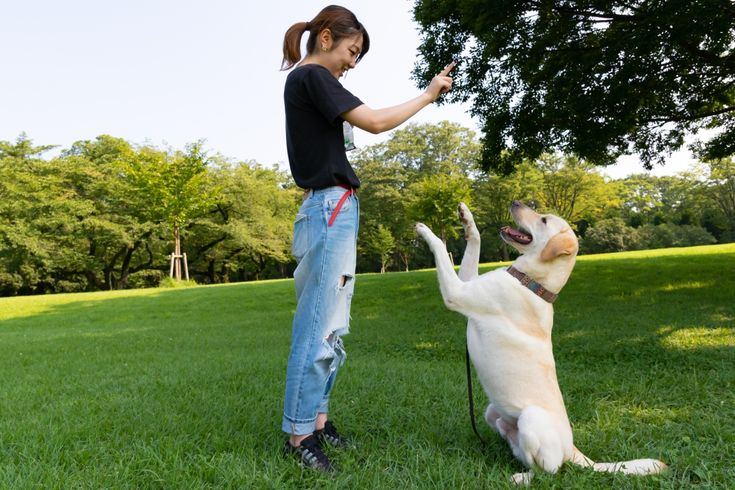Why Is My Dog Barking at Nothing?
If you have ever wondered, “Why is my dog barking at nothing?” you are not alone. This behavior can be perplexing, especially when there is no obvious explanation for it. Barking is one of the ways dogs communicate, but if it appears to occur without reason, it could suggest something else. In this detailed guide, we’ll look at the probable causes, treatments, and ways you can make your dog feel more at ease.
The Basics: Why Do Dogs Bark?
Dogs bark for many reasons, and while it may seem random to us, there’s usually a purpose behind it. Barking can signal excitement, fear, boredom, territorial behavior, or even health issues. Understanding the underlying cause is key to addressing the problem effectively.
Barking at “nothing” is frequently caused by stimuli that we are unable to perceive, such as high-pitched sounds, delicate odors, or visual clues that are invisible to us. Dogs may also bark out of instinct, which is firmly ingrained in their evolutionary past.

Possible Reasons for Barking at Nothing
1. Heightened Senses
Dogs have excellent hearing, smell, and vision. What seems insignificant to us may be quite noticeable to them. A small noise or a distant scent can easily cause a barking episode.
- Example: A dog might bark at ultrasonic frequencies from electronics or sounds from outside that humans can’t hear.
- Solution: Observe patterns in your dog’s behavior and minimize potential triggers in their environment. Noise-canceling curtains or white noise machines can help.

2. Territorial Instincts
Dogs are natural protectors of their space. Even if you don’t see anything suspicious, your dog may detect something unexpected, such as a passerby or another animal near your home.
- Symptoms: Barking near windows, doors, or in specific areas of the house.
- Solution: Use curtains or frosted windows to reduce visual triggers. Training commands like “quiet” can also help manage barking. Positive reinforcement techniques can be especially effective.

3. Anxiety or Stress
An anxious dog might bark at seemingly nothing as a way to express their discomfort. Common triggers include separation anxiety, loud noises, or changes in routine.
- Symptoms: Barking accompanied by pacing, whining, or destructive behavior.
- Solution: Create a relaxing environment with toys, music, or pheromone diffusers. Engage in soothing activities such as gentle walks or puzzle games. If nervousness persists, consult a veterinarian.

4. Attention-Seeking Behavior
Dogs quickly learn that barking gets a reaction from their owners. If they feel bored or ignored, barking at “nothing” could be their way of getting your attention.
- Symptoms: Barking increases when you’re busy or not engaging with your dog.
- Solution: Spend quality time with your dog, providing physical and mental stimulation through exercise and interactive toys. Structured playtimes help create a routine.

5. Cognitive Dysfunction Syndrome (CDS)
Older dogs may bark at nothing owing to cognitive deterioration, which is analogous to dementia in people. This can lead to confusion and increased vocalization.
- Symptoms: Disorientation, disrupted sleep patterns, and increased barking.
- Solution: Consult your veterinarian for supplements or medications to support brain health. Simple training exercises can also keep their minds engaged.

6. Paranormal Perception?
Some believe that dogs can sense spirits or supernatural entities, which could explain why they bark at “nothing.” While this is more of a theory, it’s a topic that fascinates many dog owners.
- Symptoms: Barking at specific areas or staring intently at “empty” spaces.
- Solution: While not scientifically proven, providing comfort and reassurance can help your dog feel safe. Observe if other triggers may be causing this reaction.

The Evolutionary Background of Barking
Throughout their development, dogs have relied heavily on barking as a survival mechanism. Barking acted as an alert mechanism in the wild, warning pack members of danger or indicating the existence of prey. Domestic dogs no longer face these problems, yet their instinct to bark is strongly established.
Understanding this history can help owners approach excessive barking with empathy and informed strategies.

How to Address Barking at Nothing
Step 1: Observe and Identify Triggers
Keep a record of your dog’s barking occurrences. Take note of the time, location, and prospective triggers. This can help you recognize patterns and potential reasons. Recognizing the sort of bark (high-pitched, fast, or drawn-out) can also reveal information.

Step 2: Provide Proper Training
- Use commands like “quiet” or “stop.”
- Reward your dog for calm behavior.
- Avoid yelling, as this can increase barking.
Training should be consistent and patient. Incorporate techniques like clicker training to reinforce positive behaviors.

Step 3: Enrich Their Environment
Boredom is a common reason for excessive barking. Ensure your dog has access to:
- Puzzle toys.
- Regular walks.
- Social interaction with other dogs.
Interactive feeders and rotating toys can keep their minds active and reduce unnecessary barking.

Step 4: Rule Out Medical Issues
If barking persists, schedule a vet checkup to rule out health problems like pain, hearing loss, or neurological conditions. Behavioral changes often signal underlying health issues.
Image Suggestion: A dog being examined by a veterinarian.
Step 5: Use Technology
Devices like bark collars or ultrasonic deterrents can be helpful for some dogs. However, these should be used judiciously and under expert guidance to ensure they are humane and effective.

Myths About Dogs Barking at Nothing
1. Dogs Always Know Something We Don’t
While dogs have heightened senses, not every bark signals danger or a supernatural presence. Often, the reason is much simpler.
2. Ignoring Barking Solves the Problem
Ignoring your dog can sometimes escalate the behavior, especially if they’re barking out of anxiety or boredom. A balanced approach of training and engagement works best.
Preventative Measures
1. Establish a Routine
Dogs thrive on consistency. Regular feeding, walks, and playtime can reduce stress and prevent excessive barking.
2. Socialize Your Dog
Expose your dog to various environments, people, and animals to reduce their sensitivity to stimuli.
3. Create a Safe Space
Provide a designated area in your home where your dog can retreat and feel secure. Add comforting items like their favorite blanket or toy.

Image Suggestion: A cozy dog bed in a quiet corner of a room.
When to Seek Professional Help
If the barking becomes uncontrolled or is accompanied by other strange actions, a professional dog trainer or behaviorist may be required. They can offer specialized guidance and techniques to meet your dog’s individual demands. Veterinary behaviorists can also provide solutions in more severe instances.















Post Comment